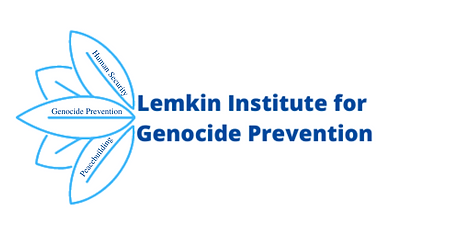What of the Rohingya? The ICC, Ukraine, and limits of “international” justice
The International Criminal Court will always be seen as a selective tool unless states agree to decide cases on need.

The International Criminal Court has sent a strong message to Russia’s government and beyond that war crimes should – and sometimes can – be prosecuted by issuing two arrest warrants against Russian President Vladimir Putin and Commissioner for Children’s Rights Maria Alekseyevna Lvova-Belova. The warrants underscore the significant geopolitical support for Ukraine, backed up by international funding commitments towards both the conflict and accountability initiatives.
Notably, however, this support is devastatingly lacking for the Rohingya people of Myanmar, almost six years after systematic “clearance operations” left scores dead and drove hundreds of thousands from the country into neighbouring Bangladesh. The warrants against Russia raise fresh questions about the selectivity of global justice processes, which ICC member states including Australia can respond to.
The situation of the Rohingya has been under preliminary examination and investigation at the ICC since 2018 (alongside a separate case at the International Court of Justice concerning whether the military violence amounted to genocide).
The ICC Prosecutor was quick to issue a clear warning against committing crimes in Ukraine. No similarly strong ICC public statements have been forthcoming concerning Myanmar.
By contrast, after Russia’s expanded invasion of Ukraine in February 2022, the ICC Prosecutor announced an ICC investigation into alleged crimes in Ukraine in March, a month after the attack. It may seem like a long time to have only now issued arrest warrants, but appears at least three years faster than the ICC proceedings about Bangladesh and Myanmar, for which none has been announced. (What remains unknown is whether “secret” sealed warrants are outstanding concerning Myanmar.)
The ICC Prosecutor was also quick to issue a clear warning against committing crimes in Ukraine. No similarly strong ICC public statements have been forthcoming concerning Myanmar. Nor has there been the same level of public support for prosecutions from other states. This is a concern, particularly since there is a view that prosecutions, arrest warrants, and statements from the ICC Prosecutor could have a deterring and preventive impact, especially during an active conflict.

Warrants are only granted where the Prosecutor can show that there are “reasonable grounds” (i.e., sufficient evidence) to believe the person has committed the alleged crime, and that arrest is “necessary” to, among other things, prevent obstruction of proceedings, including investigation, or prevent continuation of a particular crime.
At least from the outside, this should be the case for Myanmar. There is substantial information on the crimes alleged; the dedicated UN Fact-Finding Mission concluded in an August 2018 report that the Myanmar military “committed what amounts to war crimes and crimes against humanity” and an Independent Investigative Mechanism continues to capture and collect potential evidence on international crimes. Some of the same Myanmar military leadership likely under investigation at the ICC have been linked to further allegations of ongoing international crimes across the country since the 2021 coup.
The ICC does not have its own police force, but state parties to the court are legally obligated to cooperate if a suspect enters their jurisdiction. The ICC also relies on states to fund its operations. Limited funding means that difficult decisions regarding prioritisation must be made – for example, for crimes allegedly committed by US forces in Afghanistan – partly “in light of the resources available”.
At the time of writing, 43 state parties (nearly one-third of all signatories to the Rome Statute, the treaty basis for the court), and mostly albeit not exclusively from the “Global North”, had referred the Ukraine situation to the court. On the day the arrest warrants were issued, the ICC announced an agreement to establish an office in Ukraine. Much-needed funding contributions to the court increased dramatically following the opening of investigations and now again in the wake of the arrest warrants.
There has been no such coordinated push on Myanmar, despite the gravity of the crimes alleged and the ongoing allegations of atrocities following the 2021 coup. An ICC office has not opened in Bangladesh, leaving Rohingya communities even further removed from the distant Europe-based ICC.
It is true that funds are not formally “earmarked” for Ukraine, however it would be reasonable if state support played a role in the court’s speed. This is because – although not explicitly listed in the office of the prosecutor’s policy paper on the “interests of justice” and referenced only briefly in its paper on case selection – the likelihood of “success” and use of available resources are relevant to any case prioritisation. Supportive states increase both the likelihood of an arrest warrant being “actioned” and the resources available to the court.
It is understandable that ICC personnel may consider it challenging to arrest alleged perpetrators in Myanmar, who are subject to significant travel and financial sanctions and appear unlikely to travel to ICC member states soon. That said, neither are Putin and Lvova-Belova.
Clearly, the geopolitical situation is different for Ukraine. Ukraine also appears to be strongly cooperating with the ICC. The ICC has faced barriers, including with resourcing and Covid-19 when it comes to visiting Bangladesh. Still, without greater state support for accountability in situations such as Myanmar and elsewhere, questions of the court’s potential selectivity will persist.
The cooperation much of the world is demonstrating on Ukraine is what it takes to pursue international justice. Victims everywhere – the Rohingya and others – deserve the same.
(c) 2023, The Interpreter



